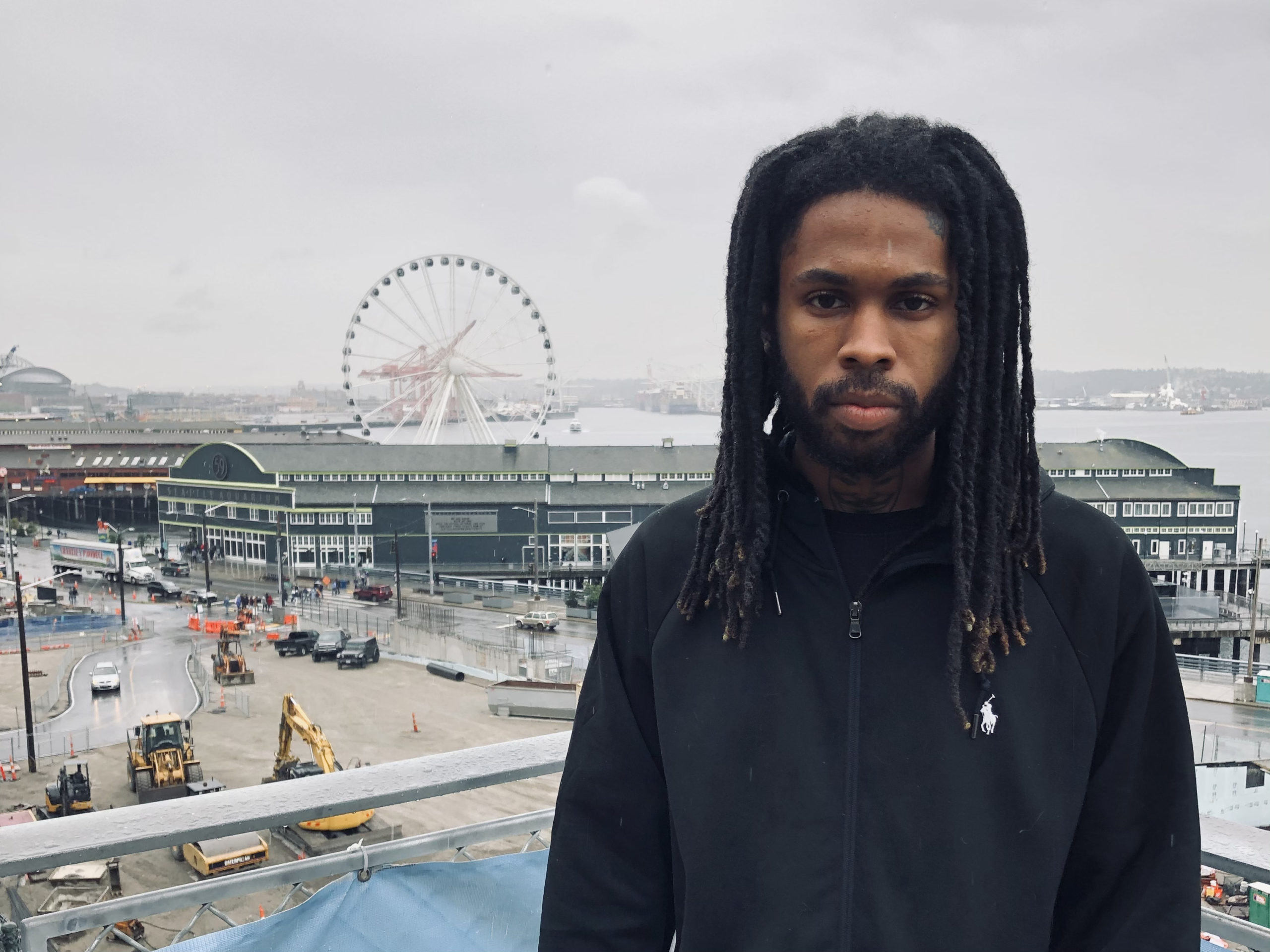Blue Chips is a monthly rap column that highlights exceptional rising rappers. To read previous columns, click here.
The conventional rap album cycle died sometime between the mid and late 2000s. No more waiting months (or longer) between the first album single and the release. Blame Napster and the like, countless G-Unit mixtapes, Tha Carter III leaks, or the internet. By the dawn of the blog era, rappers like Curren$y — the prolific stoner whose memoiristic verses could be columns in High Times or Car and Driver — were flooding DatPiff with mixtapes faster than fans (or DatPiff servers) could keep pace.
AJ Suede is partly a product of that era, a Curren$y fan whose unflagging artistic drive has led to a similar prolificacy. Since 2015, the 27-year-old New York-born rapper/producer has released 30 projects, the last 19 following his 2017 move to Seattle.
“I condense the year-long cycle into a cycle of like two to three months and just keep it going,” Suede says over the phone from his Seattle apartment. “I’m grateful to have a core [audience] that’s always excited for something new, so I just keep feeding them. And it’s cool because everybody learns about me from a different album.”
Listen to several AJ Suede albums at random — something he does to avoid redundancy — and you’ll hear the many stylistic shifts that have spawned different sects of his growing following. He can convincingly pivot from screaming about cracking neo-Nazi skulls over speaker-frying trap (i.e., “Crypto Currency” from 2017’s Gotham Fortress) to rapping on Roc Marciano-descended beats of brooding loops and sparse drums. Suede’s low yet forceful tenor and his discursive stream-of-consciousness rhymes, which contain everything from socio-political commentary and blunted cinematic allusions to psychedelic visions, are the connective tissue more often than not.
His three 2021 projects are more conversant than those in years past. Following Darth Sueder VI, and History Repeats (with producer Historian), May’s A Dream Within a Dream is his latest. Over five beats of spartan boom-bap purchased from Camoflage Monk, the Griselda-affiliated producer behind beats for Westside Gunn, AJ offers the most focused and vivid rhymes of his career. He spits about the satisfaction of independence (“Karma Credit”) and the fallacies of the education system (“Approximately Everything”) under Seattle’s “Transylvania” skies (“Lightning in a Bottle”) while retaining the spontaneity that makes his diaristic catalog continually rewarding.
“I’m trying to find that balance of not overthinking and still letting it flow. But I think stream-of-consciousness [writing] is the reason why I’m able to produce a great amount of music because I just kind of talk about what I’m doing in my everyday day: what I’m reading, what I’m eating, what I’m playing, or what I’m seeing. As long as that shit is limitless, I can write forever.”
AJ grew up in East Harlem, playing basketball on blocks where Max B bumped from passing cars and bumping into Dipset members at bodegas was common. His father worked at a hospital and ran a local basketball tournament, while mom taught computer classes at a nearby public school. Both parents were in their teens in the mid-’80s, so Wu-Tang Clan and Lauryn Hill played during trips to buy bootleg Hot 97 mixes and incense. You can also spot a young AJ in the music video for Redman’s “I’ll Bee Dat.”
When his mother moved to Pennsylvania during his sophomore year of high school, Suede followed. Though good grades came easily, his academic career was derailed when his close cousin, a Bronx graffiti artist who’d taught him about the artform, was shot and killed. “People who don’t have to deal with those things don’t grow up as quick. They get the chance to still go through their teens feeling like they’re invincible, not realizing their mortality,” Suede says, solemnly reflecting on the end of his junior year. “I think I aged a little bit quicker that year.”
Suede coped with the loss by smoking bales of weed, listening to Curren$y, and watching Adult Swim. The beats on Adult Swim’s between program bumpers led him from Flying Lotus to J Dilla and Madlib. Suede briefly enrolled in community college, but he was more interested in making beats. He spent the rest of the early 2010s working day jobs, digging into the Def Jux catalog, and shuttling between family homes in Pennsylvania and Brooklyn, where he embedded himself in the rap scene surrounding streetwear brands like Мишка, which released 2015 project, Lefthanded Virgo.
By 2016, though, AJ needed somewhere new. Drawn to Seattle’s notoriously damp and gray weather in the abstract, his first visit made his attraction concrete. “I met a lot of good people here that I fucked with, and I felt like it was a good place to separate myself and focus. I went there with no plan.”
Suede first worked at a pizza place while crashing on a friend’s couch. When he finished his shifts and reeked of garlic, he recorded, moonlighted as an amateur tattoo artist, and played every show at every independent venue in town. By 2019, he was opening for major out-of-town acts like Marc Rebillet. Though the pandemic impacted his work as a line cook, AJ continued to release music. Though he’s released three projects this year, AJ is finally slowing down, moving at a pace that allows him to spend more time on his art and the life it fuels in Seattle.
“I am working on something now, but I’m not as concerned about the cycle of getting it released as I usually would be. I think it’s enough to hold people over until I’m ready.”




